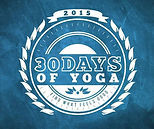top of page

Mental Health Resources
Click on the Image to open up the resource.
Table of Contents:
1) Exercise
2) Sleep
3) Therapy
4) Diet
5) Addiction
6) Mindfulness
7) Breathing Exercises
8) Medication Adherence
9) Mood Tracking
------
10) Seasonal Affective Disorder
11) Panic Disorder
12) OCD
13) Depression & Anxiety
14) Bipolar
15) Schizophrenia
16) ADHD
PsychoFarm is an Amazon Associate and may earn from qualifying purchases. Thank you for supporting our site!
1: Exercise
For mild depression and anxiety, exercise performs as well (if not better) than medications and therapy. What's the best type of exercise? Anything that you can keep doing consistently. Research has shown better effect if done with others (work-out partner, team sports, trainer).
Exercise
2: Sleep
Experts emphasize the importance of obtaining 7-9 hours of sleep, with sleep hygiene practices prioritized over medications due to their potential side effects and risks of dependency.
Sleep
Sleep
Sleep
Sleep is crucial for overall health and well-being, impacting cognitive function, emotional stability, and physical health. Experts recommend at least 7-9 hours of sleep. Sleep experts prioritize sleep hygiene practices over medications which come with potential side effects and dependency risks.
Sleep
3: Therapy
Included here is a guide for finding a therapist, self-guided CBT books (David Burns is excellent), and the CBT tool with great efficacy in depression (Behavioral Activation).
Therapy
4. Diet
A balanced diet is crucial for mental health as it provides essential nutrients that support brain function and neurotransmitter production, influencing mood regulation and overall cognitive well-being.
Diet
5. Addiction
Start here if you currently have an addiction. Tackling addictions is crucial for mental health as addiction can exacerbate existing mental health conditions and lead to the development of new ones, hindering overall well-being, social functioning, and quality of life
Addiction
Therapy
Sleep
Sleep is crucial for overall health and well-being, impacting cognitive function, emotional stability, and physical health. Experts recommend at least 7-9 hours of sleep. Sleep experts prioritize sleep hygiene practices over medications which come with potential side effects and dependency risks.
Included here is a guide for finding a therapist, self-guided CBT books (David Burns is excellent), and the CBT tool with great efficacy in depression (Behavioral Activation).
Diet
Included here is a guide for finding a therapist, self-guided CBT books (David Burns is excellent), and the CBT tool with great efficacy in depression (Behavioral Activation).
6. Mindfulness
Mindfulness involves paying deliberate attention to the present moment without judgment, and it has been shown to positively impact mental health by reducing stress, anxiety, and depression while enhancing overall well-being.
Mindfulness
Addiction
Start here if you currently have an addiction.
7. Breathing Exercises
The Wim Hof Method is a specialized breathing techniques, beneficial for stress reduction and energy enhancement. Square Breathing employs equal-length inhalation, hold, exhalation, and another hold, aiding relaxation, focus improvement, and anxiety management. The Physiological Sigh comprises a deep breath followed by a brief pause, ideal for rapid calming during emotional or physical tension. Coherent Breathing emphasizes rhythmic, equal-length breaths to regulate physiological responses, fostering stress reduction, emotional balance, and overall well-being.
Breathing
Mindfulness
Start here if you currently have an addiction.
Medication-Adherence
8. Medication Adherence
Utilizing tools such as pill organizers and medication reminders can significantly improve medication adherence, addressing the common challenge of poor compliance.
9. Mood Tracking
Mood-Tracking
Mood tracking is vital for mental health as it allows individuals to recognize patterns, triggers, and fluctuations in their emotions, empowering them to make informed decisions and seek appropriate support when needed.
Breathing Exercises
The Wim Hof Method is a specialized breathing techniques, beneficial for stress reduction and energy enhancement. Square Breathing employs equal-length inhalation, hold, exhalation, and another hold, aiding relaxation, focus improvement, and anxiety management. The Physiological Sigh comprises a deep breath followed by a brief pause, ideal for rapid calming during emotional or physical tension. Coherent Breathing emphasizes rhythmic, equal-length breaths to regulate physiological responses, fostering stress reduction, emotional balance, and overall well-being.
8. Medication Adherence
Utilizing tools such as pill organizers and medication reminders can significantly improve medication adherence, addressing the common challenge of poor compliance.
10. Seasonal Affective Disorder
SAD
11. Panic Disorder
Panic
10. Panic Disorder
Utilizing tools such as pill organizers and medication reminders can significantly improve medication adherence, addressing the common challenge of poor compliance.
12. Obsessive Compulsive Disorder
OCD
13. Depression / Anxiety
Depession
11. Bipolar Disorder
Utilizing tools such as pill organizers and medication reminders can significantly improve medication adherence, addressing the common challenge of poor compliance.
14. Bipolar Disorder
Bipolar
11. Bipolar Disorder
Utilizing tools such as pill organizers and medication reminders can significantly improve medication adherence, addressing the common challenge of poor compliance.
15. Schizophrenia
Schizophrenia
11. Bipolar Disorder
Utilizing tools such as pill organizers and medication reminders can significantly improve medication adherence, addressing the common challenge of poor compliance.
16. ADHD
ADHD
11. Schizophrenia
Utilizing tools such as pill organizers and medication reminders can significantly improve medication adherence, addressing the common challenge of poor compliance.
bottom of page
































_pdf%20-%20Google%20Drive.png)













